Zotac showcases new PCs: Mek Mini, Mek Ultra, and VR backpack
June 11, 2018 | 19:00
Companies: #zotac
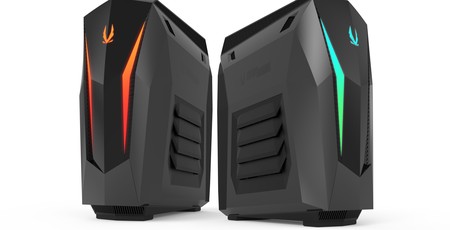
Zotac has shown off a variety of new PCs at Computex 2018 covering a range of different form factors and use cases.
First up is the Mek Mini, which adds to the Mek lineup started by the Mek1 earlier this year. It’s a fully fledged PC, not a barebones package as you might be used to from the Zbox range. As the name suggests, portability is the name of the game here. Our stupid photographer (okay, it was me) forgot to get shots of this one, so the render above will have to do, but the Mek Mini is set to launch in Q4 – pricing hasn’t been disclosed. Regarding specs, we know that it will use an 8th Gen Intel processor and a Zotac GTX 1080 Mini, with these two hot components thermally isolated from each other. Killer networking hardware and a 32GB Intel Optane cache module will also be present, as will Addressable RGB lighting on the front of the case, compatible with Zotac’s Spectra software.
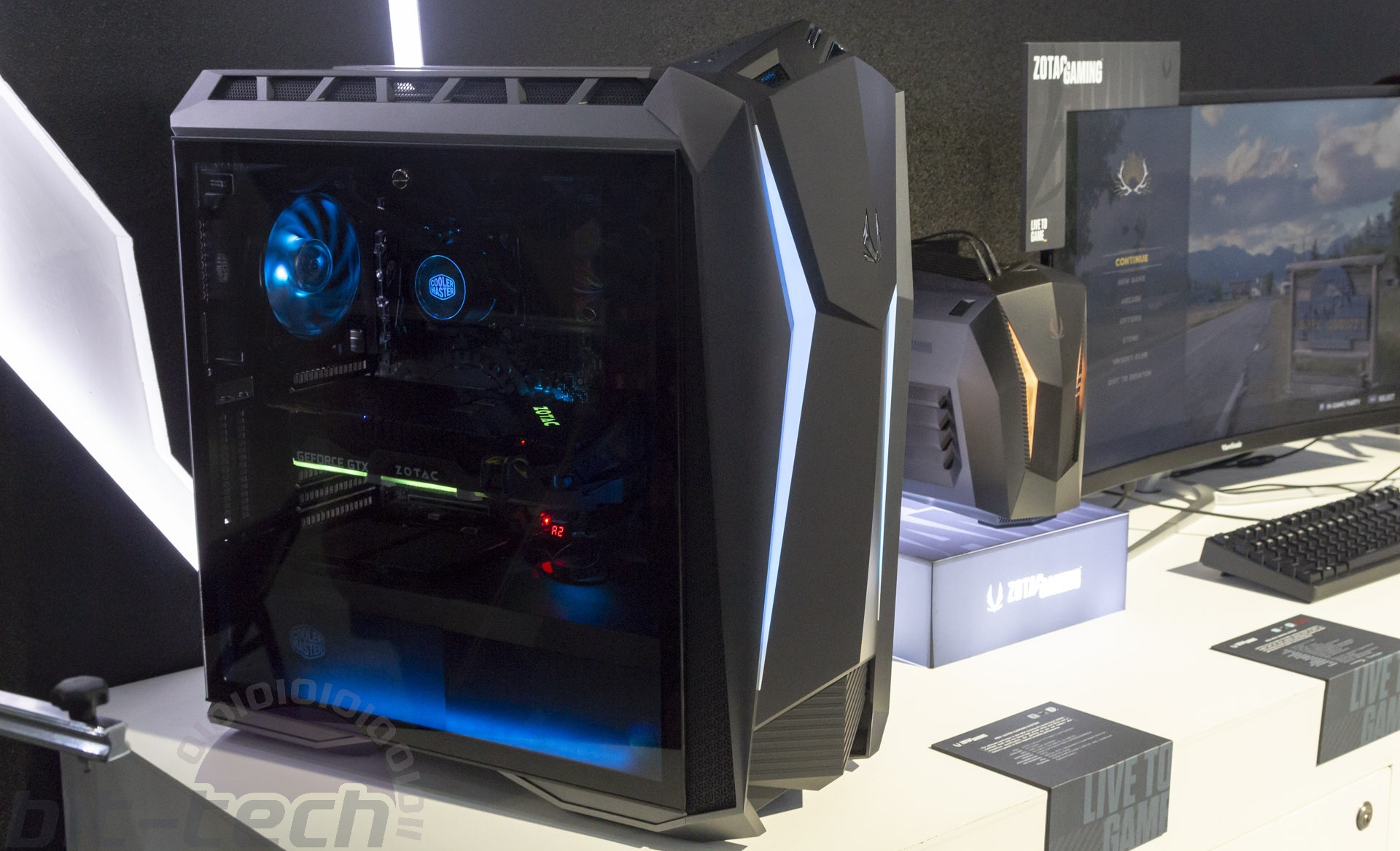
A third member of the Mek family is the Mek Ultra, which is also due to launch in Q4. This is designed to be a real monster PC, a best of the best offering, and the current specifications reflect that, including as they do a 10-core Intel Core i9-7900X, a Zotac GTX 1080 Ti Amp! Extreme, six USB 3.1 ports, 32GB of DDR4, and a 1,000W PSU. The storage includes a 512GB NVMe M.2 SSD and a 4TB 3.5” HDD backed up by an Intel 32GB Optane module. The case is a co-operation with Cooler Master. Pricing has not been disclosed, but you can expect it to be high. Zotac also not-so-subtly hinted at the new Nvidia hardware on the horizon by saying that users can expect upgrades to the hardware to take advantage of the latest tech at the time of launch.
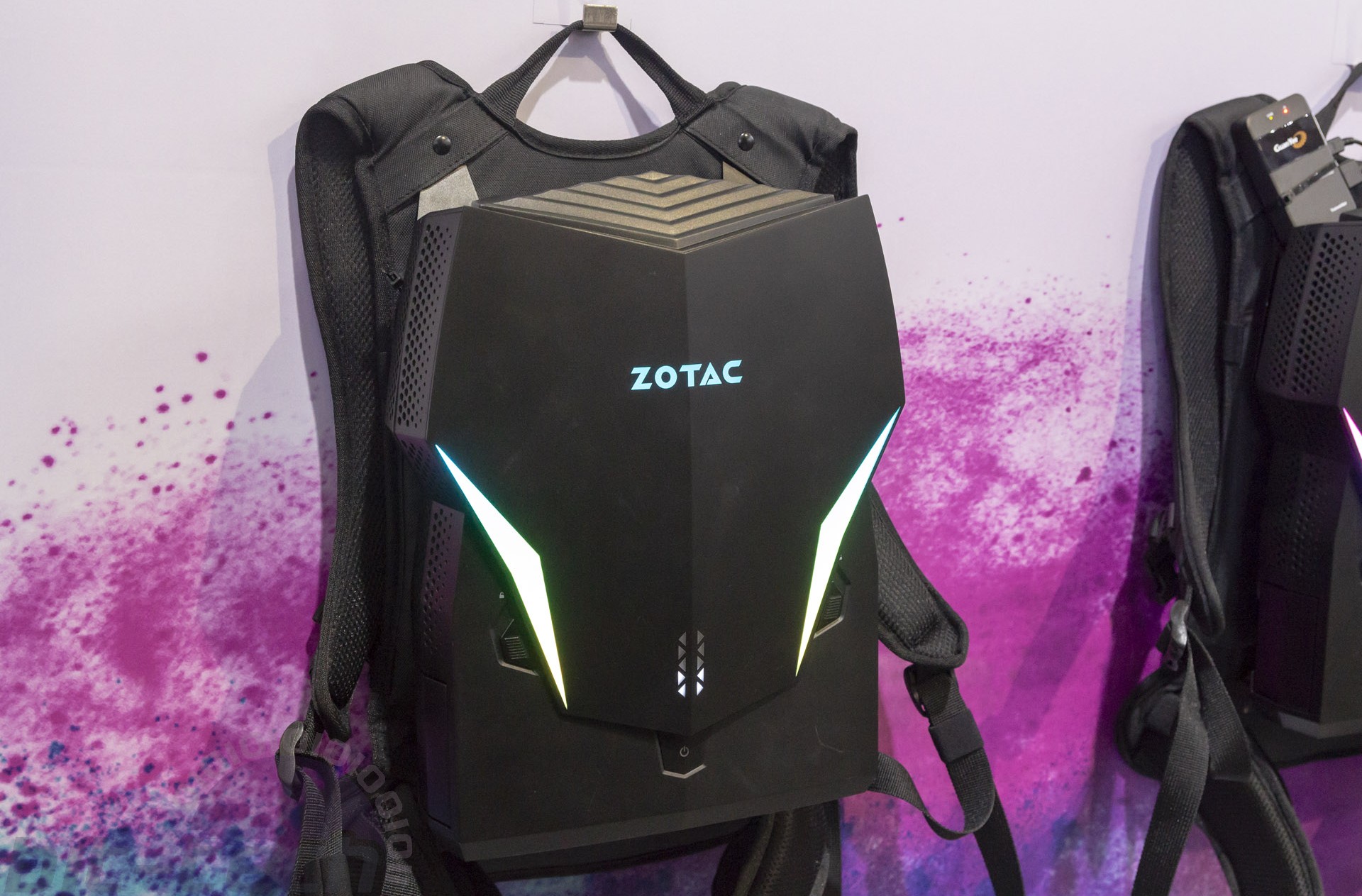
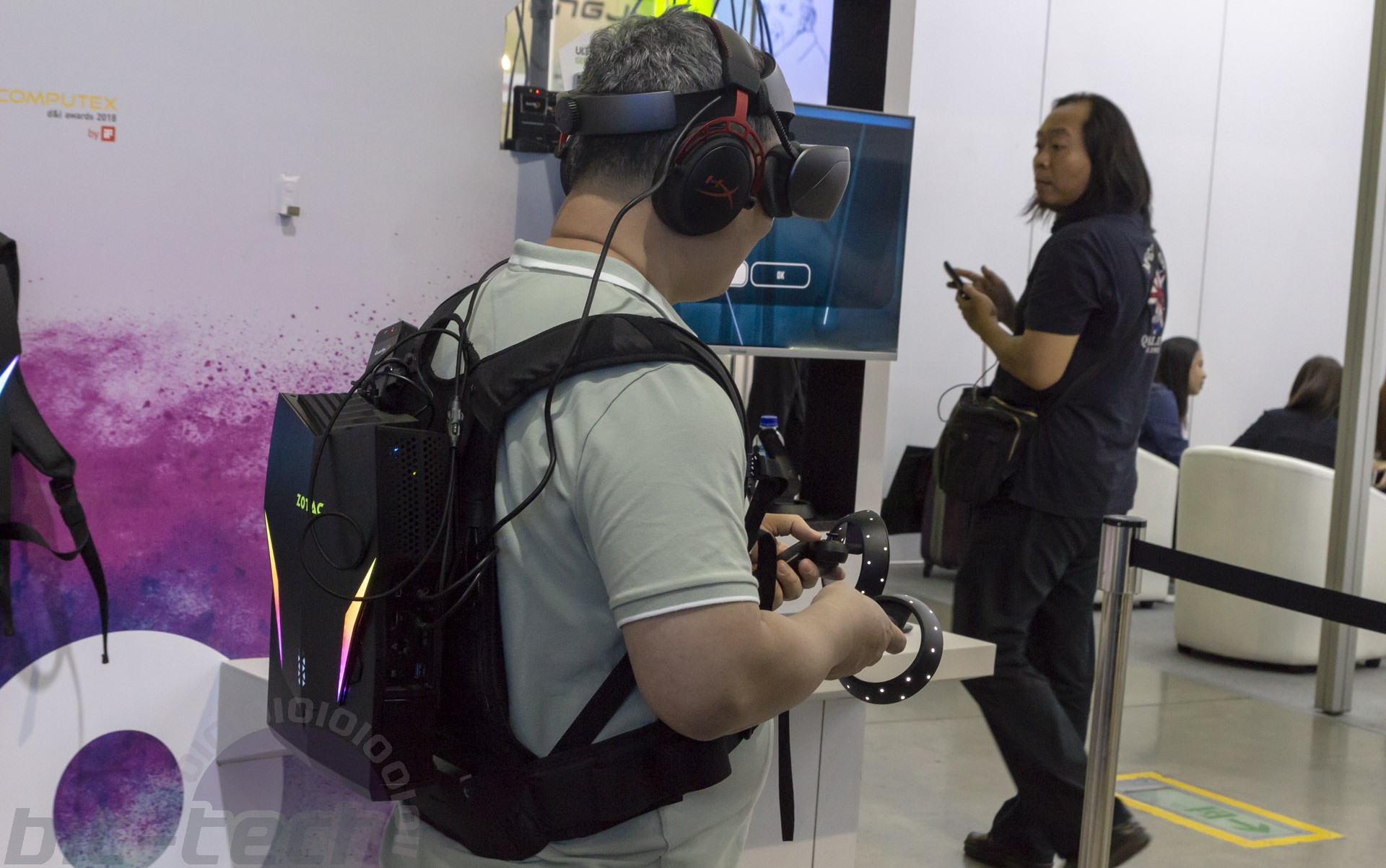
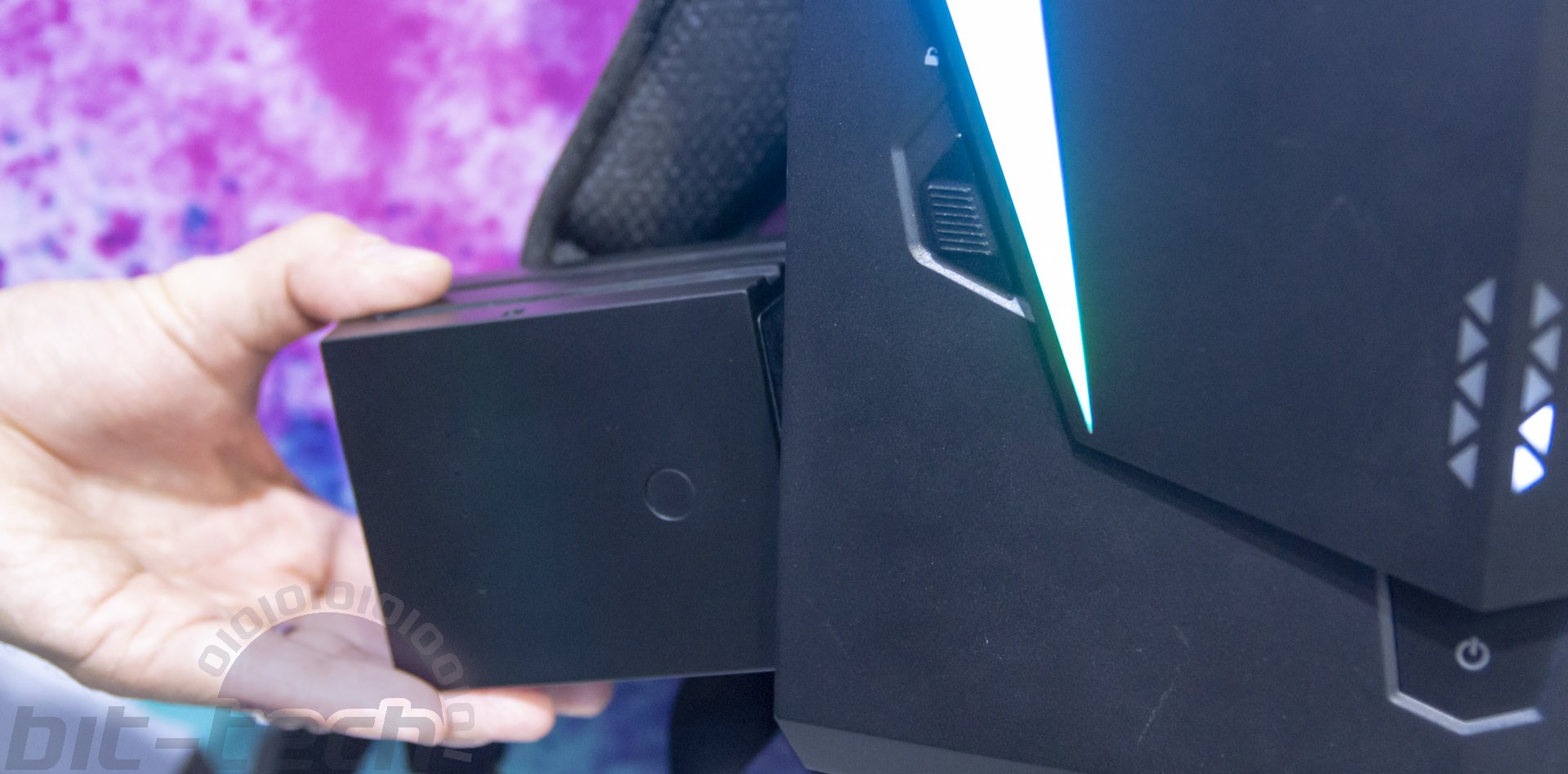
Lastly, we saw the VR Go 2.0, the second-generation offering of Zotac’s VR backpack, literally a battery-powered mini-PC in a backpack that you wear, thus removing the tether between yourself and a PC that you get in a typical VR setup. The specs have been upgraded and now include an Intel Core i7-8700T processor as well as the Zotac GTX 1070. Perhaps more importantly, the whole apparatus is now some 500g lighter (4.5kg total) and it’s also smaller. And, of course, there’s addressable RGB lighting. The top-facing I/O panel has also been bolstered with extra connectivity suitable for VR headsets. The PC is powered by two 86.4Whr batteries, each granting about 45 minutes of playtime, but hot swapping is supported so users can swap in a newly charged battery, remove the depleted one, and carry on. The mechanism is designed to be easily accessed with the backpack being worn. The VR Go 2.0 should launch in September or later in Q4 for the same price as the first-gen model.

MSI MPG Velox 100R Chassis Review
October 14 2021 | 15:04

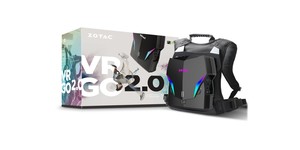




Want to comment? Please log in.